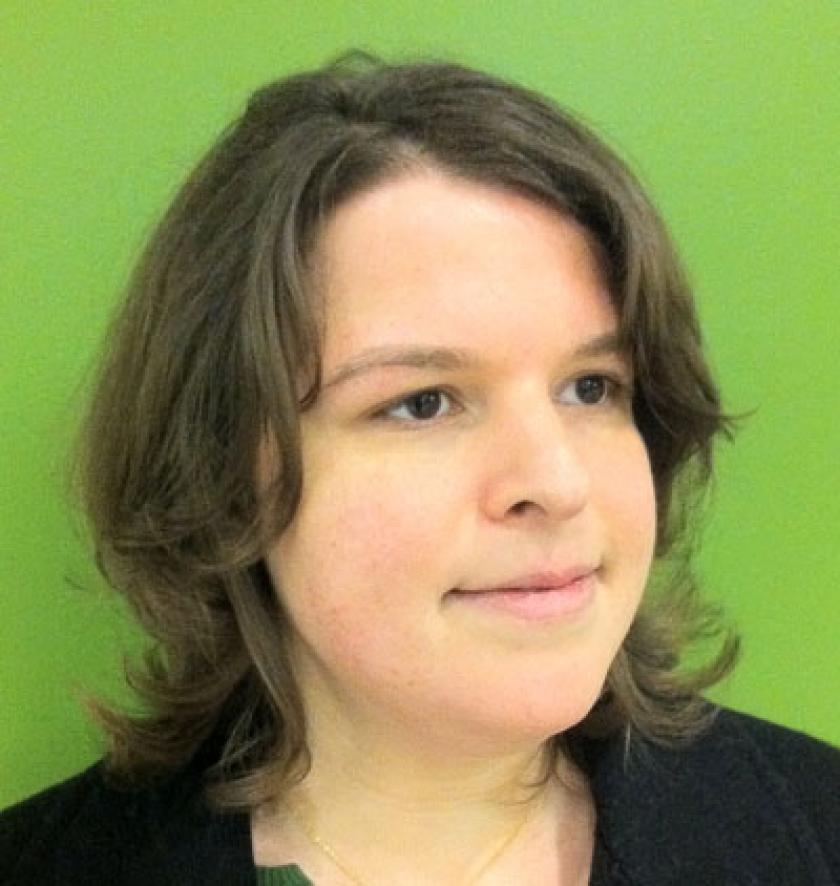
A design background led master’s student Lorin Bruckner to study data visualization at GSLIS. This spring, she will complete her MS in LIS with specializations in socio-technical data analytics and data curation and pursue a career as a data visualization developer.
Why did you decide to pursue an LIS degree?
I obtained my undergraduate degree in graphic design and began working as a web designer for an advertising agency. While I was creating websites and user interfaces, I thought a lot about how people interacted with them. Over the years, I became progressively more interested not only in people's relationships with websites but also in the information they encountered on the internet. I spent a lot of time experimenting and developing ways to guide people toward the information they were looking for, and it was something I wanted to study on a deeper, more technical level.
Why did you choose GSLIS?
I do very well with self-directed learning, and the GSLIS program is incredibly flexible. It allowed me to take courses in subjects like data analysis, information retrieval, and text mining without needing an undergraduate degree in statistics or computer science. That made it possible for me to augment my previous knowledge and skills with new proficiencies and opened up opportunities for a new career path.
What particular LIS topics interest you most?
Data visualization is what I'm most interested in. It combines my graphic design background with the data analysis skills I've learned at GSLIS while also heavily considering how people interact with data.
I'm also really interested in working with text. A problem I've continued to think about since joining the program is information quality. I've heard a lot of people complain about how difficult it is to determine whether or not information they encounter on the internet is actually true. We try to teach people how to find quality sources and measure the accuracy of information, but that process is frequently time consuming and requires specialized knowledge. I'm often thinking about this issue in terms of a text mining problem, and although current technology might not quite be up to the task, I can't help but believe a solution may someday be within our grasp.
What do you do outside of class?
I'm currently working on a practicum project for the Office of the Vice Chancellor for Institutional Advancement (OVCIA) at Illinois. It's a text mining project that analyzes news articles about the University to see how those articles affect advancement issues, like donations. It uses a method called sentiment analysis to measure how positive or negative an article is, and then that information can be tracked over time.
What career plans or goals do you have?
More and more opportunities have been opening up for data visualization to the point where "data visualization developer" is a common job title, so that's where I'm focused on heading. I would love to work with big data or as part of a research team, but ultimately I just want to have an impact on how people interact with information.